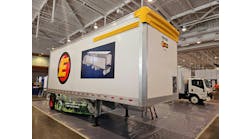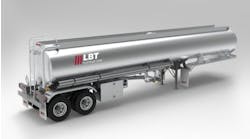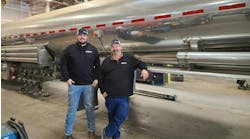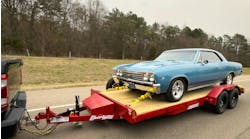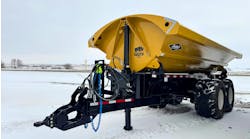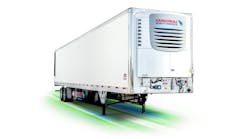The U.S. Department of Energy Solar Energy Technologies Office (SETO) granted Wabash a $1.6 million grant award to support a research and development project aimed at decarbonizing the commercial transportation industry. The three-year project, set to begin next year in partnership with the University of Delaware’s Center for Composite Materials, focuses on integrating high-efficiency solar energy into refrigerated trailers and truck bodies. This innovation will work to make zero-emission mid-mile transportation a commercially viable option.
“This project has the potential to revolutionize refrigerated transport by reducing reliance on the electrical grid and minimizing overall emissions,” said Michael Bodey, director of technology discovery and innovation at Wabash. “While many of today’s zero-emission products focus on tailpipe emissions, they still draw power from energy grids, which often rely on non-renewable sources. Our goal is to offer a truly green solution—a well-to-wheel approach—that accounts for the full life cycle of energy consumption, from production to usage.”
Wabash will use its proprietary EcoNex Technology, a composite material designed to enhance thermal efficiency and reduce energy consumption, while the University of Delaware will contribute its proprietary TuFF technology, which utilizes recycled aerospace-grade carbon fiber, to strengthen and lighten the trailers and truck bodies.
Read more: Kodiak selects Wabash’s Trailers as a Service for optimization
“By incorporating lightweight solar panels and utilizing EcoNex Technology in refrigerated trailers and truck bodies, we are addressing two of the most significant barriers to electrification: weight and energy consumption,” Bodey explained. “EcoNex not only improves the insulation and performance of the trailers but also contributes to overall weight reduction, making the solution even more efficient.”
Batteries powering heavy trucks can weigh between 5,000 to 10,000 lbs, often limiting the payload capacity and drawing significant energy from the electrical grid when charging. The goal of this project is to develop enabling technologies that reduce the weight and energy needs of these vehicles while offering fleet customers greener, more efficient transportation options.
Wabash is the only trailer and truck body original equipment manufacturer (OEM) selected for this government grant. By focusing on mid-mile transportation, the project seeks to create a flexible solar energy system that can be CARB-compliant across different vehicle types, without requiring fully electric platforms to meet compliance.
This initiative is part of the DOE’s Silicon Solar Manufacturing and Dual-use Photovoltaics Incubator Funding Program, which supports advancements in PV technology across the supply chain and fosters new markets for American products.
